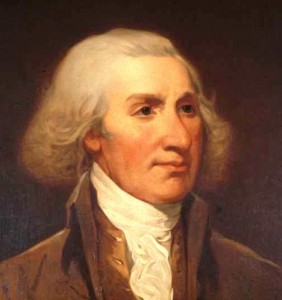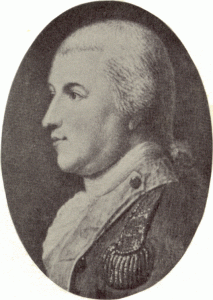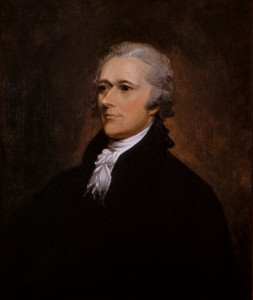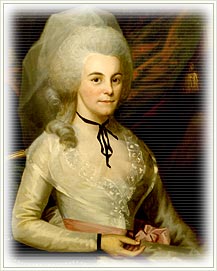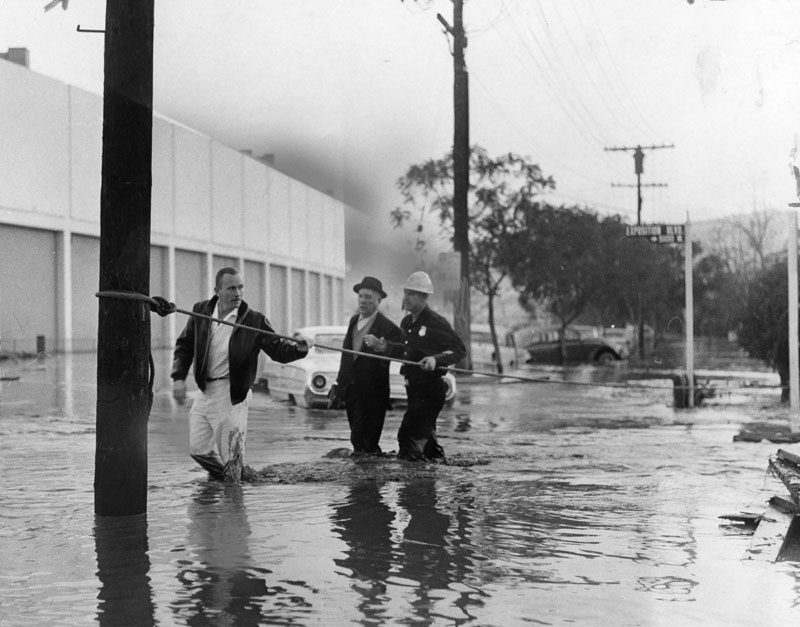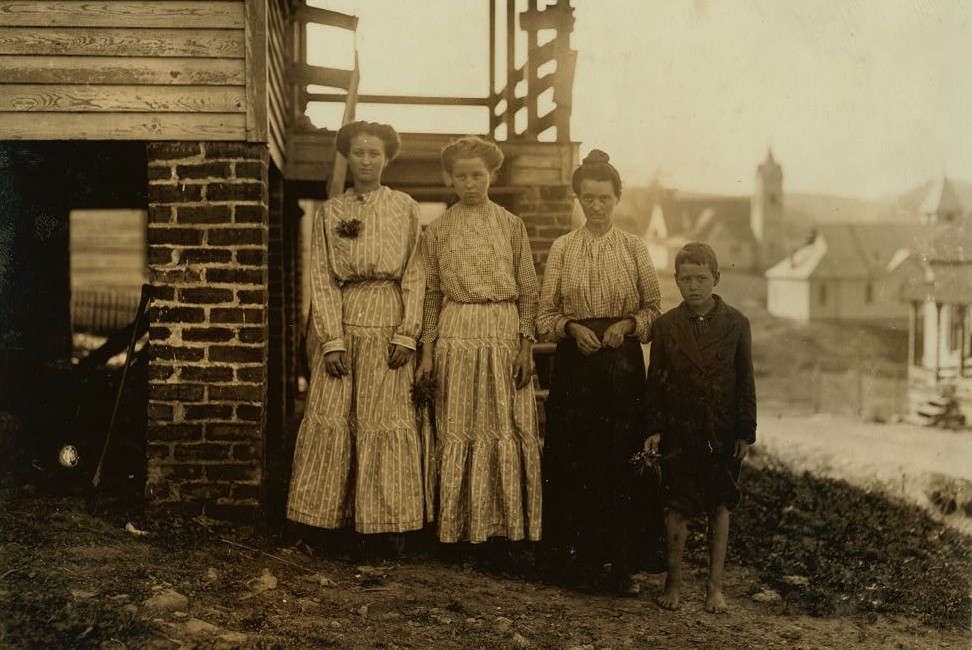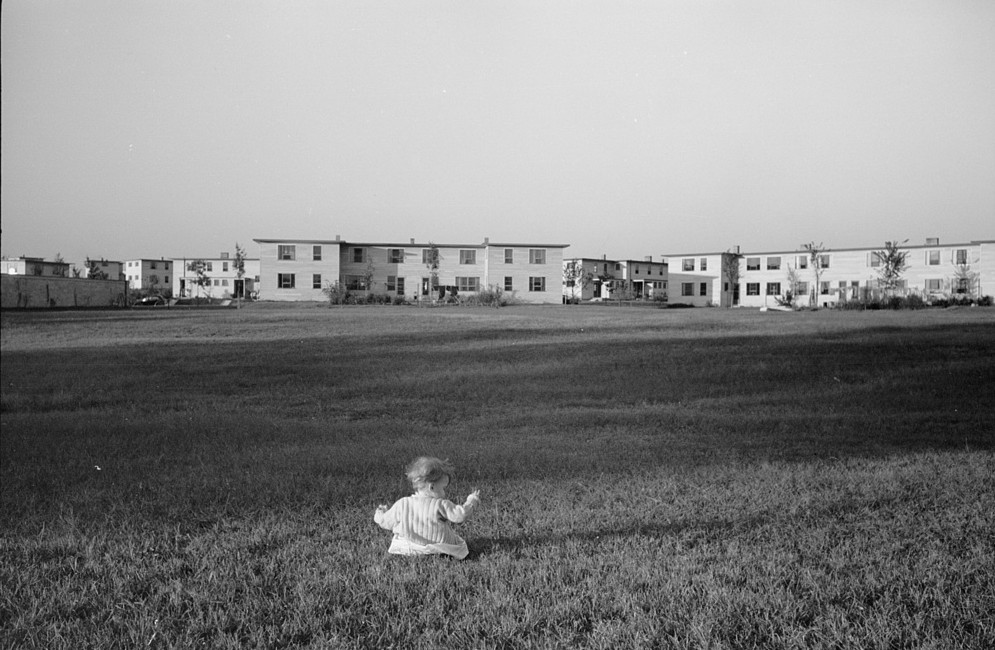Near the corner of Morris Street and Oliphant Lane( in Morristown, New Jersey) is the small two-storied house where Surgeon General John Cochrane had his head-quarters during the camp at Morristown.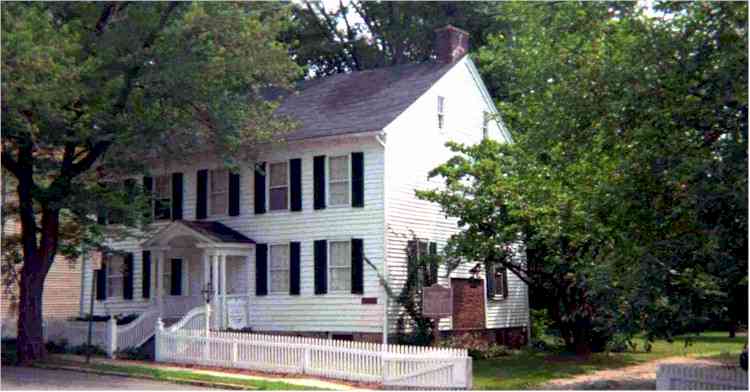
It was the home of Dr. Jabez Campfield, a surgeon in Spencer’s regiment, then in the wilds of Pennsylvania.”
Surgeon General John Cochrane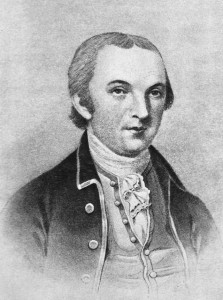
Many years before the Revolution Dr. Cochrane had married General Philip Schuyler’s only sister. In the spring of 1780, when the head-quarters house saw most of its gaiety and merrymaking, Elizabeth Schuyler, the general’s second daughter, journeyed by coach to Morristown, under escort, to visit her aunt.
General Philip Schuyler
From all the accounts history has recorded, this maiden from Albany possessed a most pleasing personality. Colonel Tench Tilghman,* a close friend of Alexander Hamilton’s, on meeting her for the first time, described her as being “a brunette, with the most good-natured lively dark eyes I ever saw, which threw a beam of good temper and benevolence over her entire countenance.” In her portraits she undoubtedly possesses a fair share of physical attractions, and perhaps her beauty was heightened a little at the time she lived by her father’s wealth and high social position in the colonies.
Colonel Tench Tilghman
Girls of the eighteenth century, minus hoop and high head-dress, were very much the same as girls of to-day, and it would be interesting to know Elizabeth Schuyler’s thoughts as she gazed out of her coach window on primitive Morristown. Did she dream that she was soon to reach the greatest epoch of maidenhood? No mediocre suitor Destiny had marked out for her, but the Prince Charming of the army, Alexander Hamilton, who shortly after her arrival laid his heart at her feet.
Elizabeth Schuyler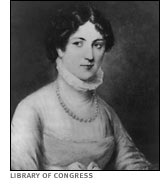
Alexander Hamilton at that period was still under twenty-one. He had been the commander-in-chief’s aide-de-camp and secretary for nearly three years, and then enjoyed his special favor and confidence.
Alexander Hamilton
His Scotch shrewedness and perseverance, inherited from his father, and a share of his French mother’s vivacity and tact had combined to make him one of the most remarkable figures of the time. Born on the Island of Nevis, in the West Indies, he early evinced a desire to get on in the world. When but thirteen he was employed in the counting-house of Nicholas Cruger, at St. Croix. This gentleman was connected with several old New York families.
In early life, during a visit to Santa Cruz, he married a native heiress descended from the French nobility, and established a permanent home on the island, journeying to New York City every two or three years.
On one of his voyages, during the latter part of the Revolution, his ship was captured by a British frigate, and he was taken a prisoner to New York City. Through the influence of the Walton family, high in Tory circles, he was released on parole, and made his home with them in the famous Walton House.
He sympathized with the colonies, although he did not take an active part in the struggle for independence, and on the day of General Washington’s inauguration was one of the guests of the New Jersey Livingstons, following the great chief’s barge from Elizabethtown to New York.
Some years after Alexander Hamilton’s death, his niece by marriage, Catherine Church, wedded Bentram Peter Cruger, a son of Nicholas Cruger.
While employed by Nicholas Cruger, young Hamilton wrote to his boyhood friend Edward Stevens the famous letter which has often been published. In it he says:
“My ambition is prevalent, so that I contemn the grovelling condition of a clerk, or the like, to which my fortune condemns me, and would willingly risk my life, though not my character, to exalt my station. I am confident, Ned, that my youth excludes me from any hopes of immediate preferment, nor do I desire it; but I mean to prepare the way for futurity. I’m no philosopher, you see, and may be justly said to build castles in the air; my folly makes me ashamed, and beg you’ll conceal it; yet, Neddy, we have seen such schemes successful, when the projector is constant. I shall conclude by saying I wish there was a war.”
These longings and restive desires to escape the dull and dreary routine of a mercantile career soon incited him to write an article for a newspaper, which attracted the attention of the governor of St. Croix, and that worthy interested himself in having Hamilton sent to America. Arriving at Boston, he set out at once for New York.
While in the latter city he delivered some of the letters of introduction given to him by Mr. Cruger and his old tutor, the Rev. Hugh Knox, and through the advice of new friends he soon started for Francis Barber’s grammar-school at Elizabethtown. Carefully guarded in the pocket of his coat was a letter of introduction to William Livingston, whose many subsequent acts of kindness to him formed a firm foundation for his meteoric career.
This prominent man was so pleased with his respectful address and yet sprightly bearing on their first meeting that he invited him to live with his family at the Hall. In such an environment as the cultivated Livingston household a youth of Alexander Hamilton’s temperament could not fail to blossom forth as he did.
Liked by the head of the household,—who was very chary of his liking,—made much of by Mrs. Livingston, and adopted by the Livingston daughters as a brother and playfellow, fortune indeed smiled on his auspicious advent into the Jerseys.
A new girl in Morristown, and one as celebrated as Miss Schuyler, did not long remain unnoticed in the war-time days of 1780, when every chance of pleasure that relieved the dull tedium of the routine at headquarters was eagerly pursued by the officers, many of whom began to frequent the Campfield House; and young Hamilton was among the first to pay ardent court to his “Betsey,” as he soon commenced to call her.
Life at camp, with its hardships and elements of danger, was not without attractions. There was always the glorious thought for these brave men and women that they were helping to mould the destiny of the country, and in the intervals between the alarms of the enemy many of the refined pleasures of life were enjoyed.
During the minuets in the wide hall of the chief’s dwelling our young lover found ample opportunity to whisper sweet nothings into his charmer’s ear. In the games of forfeits he could always steal to her side to obtain a love-knot, and he most likely found ample opportunity to ride with her over the hills and vales of Morris County, then in the first flush of early spring,— a pretty setting for a budding passion.
Elizabeth Schuyler Hamilton
After a few months had passed, all the members of the Washington household, Dr. Cochrane,—dubbed by his friends ” good Dr. Bones,”—and his wife at the little house by the lane were aware of the romance unfolding before their eyes.
About this time General Schuyler arrived at the head-quarters house to confer with General Washington on needed reforms in the army, and with his sanction the youthful pair were betrothed and the wedding talked over for an early date.
There was another Revolutionary love-affair in General Schuyler’s family which history has scarcely noted, —overshadowed as it is by that of Hamilton and his “Betsey,”—and that is the elopement of Angelica, his eldest daughter, with John Barker Church,* a gentleman of fortune masquerading in America under the nom de guerre of Carter.
Angelica Schuyler Church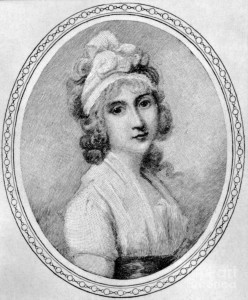
The vivacious and clever Angelica, who far outshone the more retiring Elizabeth, met him at a Philadelphia assembly at the beginning of the war. Possessed of dashing manners and almost godlike beauty, it is small wonder that he attracted the attention of the maiden.
From his mother, Elizabeth Barker, celebrated at the court of George III. for her loveliness, he inherited the languishing blue eyes and finely-chiselled features which Reynolds and Cosway have immortalized. Although but a few years past his school-days, he was already the hero of many adventures and a breaker of hearts.
To escape a marriage with a wealthy kinswoman, whose Lowestoft estates joined his own, and the consequences of a duel, he fled from London without baggage or credentials; and it was under his assumed name that he wooed and won the most brilliant daughter of one of New York’s first families. General Schuyler at first did not approve of the marriage, but through the influence ofthe Patroon Van Rensselaer, who encouraged and sheltered the young couple at his manor, he gradually relented, and finally received them with open arms at the Albany homestead.
The careers of Alexander Hamilton and John B. Church possess many instances of striking similarity.* They both were of versatile energetic temperaments, and Fate decreed them lives that were veritable marches of triumph. While one was moulding the destiny of America, the other became a power in the London world which circled about a throne. The daughter of General Schuyler, as Mrs. Church the fair American, was one of the first of our matrons to win pronounced social success in England.
She spoke French like a native, having learned the language from her father, who had been educated in a French Huguenot school at New Rochelle. Her card-parties were always attended by the highest nobles of Europe. The great Mrs. Sarah Siddons acted in her drawing-room, and George IV. once said of her that she was one of the brightest stars in the world he knew as a young man.
Elizabeth Schuyler never longed for her elder sister’s great social triumphs. It is true she was one of the ladies of the Washington circle, but, simple and retiring, she was happier in her domestic life than when forced to face the glare of candles and the din of drawing-rooms. “Betsey,” the Morristown sweetheart, always occupied the first place in Hamilton’s heart, whatever may have been written to the contrary.*
Through their strangely eventful lives they walked hand in hand; and long after his death, when she sat alone in her purple-lined pew in old St. John’s, on Varick Street, New York City, she was still devoted to his memory. When a very old lady and given to reminiscences, she is said by those who knew her to have spent fully a fourth of her time talking of the Hamilton of her youth,—the handsome boy who paid his court to her at a little house on a Jersey lane.
Alexander Hamilton never did anything in his life without the force of his whole nature, and surely he was an ideal lover. The letters which followed his leaving camp on various missions for General Washington were enough in themselves to storm the heart of any maiden. In a very beautiful one he writes to the object of his affections, after telling her many times that he loves her,
“I suspect, however, if others knew the charm of my sweetheart as well as I do, I should have a great number of competitors. I wish I could give you an idea of her. You have no conception of how sweet a girl she is. It is only in my heart that her image is truly drawn. She has a lovely form, and a mind still more lovely ; she is all goodness, the gentlest, the dearest, the tenderest of her sex. Oh, Betsey, how I love her!”
The old Campfield House was moved many years ago. from its original site to the plot it now occupies. The side windows no longer peep over the hill-top at the large Ford Mansion, as they used to do in days gone by.
The Campfield garden, where Dr. Jabez Campfield in his diary tells us that he had so many fair flowers and choice vegetables, is now occupied by modern houses facing Oliphant Lane. The Campfield House itself is very little changed. Its interior has been somewhat modernized, but its exterior still looks as it did when young Hamilton went forth from the Ford Mansion to court his “Betsey.”
* Colonel Tench Tilghman was one of Alexander Hamilton’s favorite companions during the army’s stay at Morristown. At the time of Elizabeth Schuyler’s arrival at the Cochrane House he was in love with his cousin Anna Maria Tilghman, whom he met for the first time a few months before, when on a furlough. Tradition says he helped along Hamilton’s courtship by ofttimes assuming some of his duties. At the close of the war he married his cousin, Miss Tilghman.
* A portrait of Mr. and Mrs. John Barker Church and their children, by Sir Joshua Reynolds, is in the possession of the Misses Cruger, of Cruger Island in the Hudson. A small painting on copper of Mrs. Elizabeth Church, by an unknown artist, and a miniature of John Barker Church, by Cosway, are owned by Mrs. Benjamin S. Church, of New York City.
In the year 1790 John Barker Church, with Lord George Cavendish, was elected to Parliament from Wendover,—referred to in a letter of the time by the rather inelegant sobriquet of “rotten borough.”
Nothing has been written on the family’s gala period in England, although many memories are still alive. Their old home in Sackville Street is still standing, and until a few years ago was quite a prosperous lodging-house. There on the birthday of one of Lord Gage’s daughters the Churches gave a famous ball to ” Prince Florizel” and his charmer Mrs. Fitzherbert. The house, though a large one, was not adequate for the great company invited, and a dancing-pavilion was temporarily erected over Lord Melbourne’s gardens in the rear. The Duchess de Noailles was the belle of the occasion, wearing a gown embroidered with brilliants and dancing many times with His Royal Highness the Prince of Wales. In those days Philip and his younger brother John used to entertain crowds of Eton school-fellows at Down House, their father’s country home near Windsor. They always made their journeys on the Thames in the royal boats, by permission of the Prince of Wales. “Florizel” was very fond of their father, and a great admirer of his personal beauty, although he sometimes laughingly spoke of him as ” the French Commissary.”
Philip Church made many friends among the sons of the gentry when at Eton, and in after years, when he returned to America and became his uncle Alexander Hamilton’s secretary, he frequently corresponded with them. An amusing and hitherto unpublished letter received by him from the notorious Sir Philip Francis, during a second visit to England, is in existence to-day. It reads:
“July 8th 1812
“Dear Sir
“I wish you would rite me a line by any days post in the present week to let me know whether u have any thauts of returning into the bosom of your family a fond de l’Amerique. I want to send many instructions to my friend the great Cadwallader, I wish he had been crissened Caractacus, particularly to have no mercy on my Debtors ; but to remit me the amount as fast as he can rescue the computed value of my lands, now theirs out of their Bowels.
“From this I proceed to Tunbridge Wells on Tuesday next, where it seems fit that u should pay a visit. I can furnish u with food, but not with Lodging, or washing, much less raiment.
“Phx.
“N.B.—I have just received a letter from a fine lady ending thus ures til deth.”
To enumerate the friends of the Churches in London it would be necessary to repeat many of the names which added lustre to the gilded, glowing days when Dame Fashion by her extravagances made the first gentleman of Europe pawn the crown-jewels of the British empire. One of the most notable was the brilliant Charles J. Fox, who formed a strong attachment for them. During the space of a few years he borrowed a fortune from John B. Church, and the latter’s descendants still possess some of the I. O. U.’s, which a wit of the reign of George IV. termed Fox’s “new currency.” The following is an unpublished letter received by John B. Church, in New York City, from Charles J. Fox, when the latter was made Prime Minister of England:
“June 5th 1806
“My Dear Sir:
“I take the opportunity of the first mail since my entrance into office to repeat to you my assurances of friendship and regard, and the deep sense I have of the many essential obligations you have conferred on me. If it should be in my power either by the share of power which is peculiarly my own, or by my influences with my collegues, to show my kindness or civility to you or yours it will give me highest satisfaction. . . .
“With respect to public affairs there seems to be getting up on your side of the water a heat, that has the appearance at least of being very alarming; as the business between the two countries is chiefly in my department, I am sure you know me well enough to be sure that every thing possible will be done to settle the matter amicably. Lord Selkirk who is going as envoy is a very well informed and sensible young man, and if you happen to meet I am sure you will be pleased with him.
“My best respects to Mrs. Church, and good wishes to the whole family.
“I am, my dear sir,
“Most truly your faithful & obliged servant
”C. J. Fox.”
* John B. Church fought a duel with Colonel Burr in the summer of 1799, on the same ground where Alexander Hamilton subsequently fell. At a dinner given by Chancellor Livingston, Mr. Church in the course of conversation mentioned a report he had heard that the Holland Land Company had cancelled a bond for twenty thousand dollars against Burr for services rendered in the Legislature. This reached the ears of Colonel Burr, and he demanded an apology. Mr. Church declined any further than to say that perhaps he was indiscreet in repeating the accusation without fuller authority. This was not accepted, a challenge was sent, and they met and exchanged shots without effect.
* In a recent work on Alexander Hamilton there is a most cruel, and generally false, sketch of the woman best known to the world as Madam Jumel. Friends who had her confidence in life deny that her affection for Alexander Hamilton was more than platonic and that she tried to estrange him from his wife. She was a faithful and loving helpmate to Stephen Jumel, and always spoke of him with tenderness. During her last years she possessed a fondness for talking about her brilliant career, and if one mentioned the name of Alexander Hamilton in conversation it never secured more than a passing interest.
It is a shameful act to endeavor to ruin the good fame of a woman remembered with affection and respect by many people still living. No one will ever be able to answer Madam Jumel’s traducers, for the secrets of her life lie locked in her silent breast.
SOURCES
- Historic Houses of New Jersey By Weymer Jay Mills .J. B. Lippincott Company – written in 1902
Click here to Join Amazon Kindle Unlimited 30-Day Free Trial  and choose from over one million Ebooks to read for FREE!
and choose from over one million Ebooks to read for FREE!
Three complete historical novels for $14.97! Tapestry of Love Historical Series 2nd edition 2015 –Court records dating back to the 1630s create historical accuracy as the reader is taken back to the primitive days of colonial Virginia and Maryland where the Pattendens encounter life-changing difficulties with Indians, ducking stools, illness, massacres, death, loneliness, love, and greed.
READER REVIEW OF RIBBON OF LOVE: 2nd edition – A Novel of Colonial America Book one: The exhilarating action and subplots keep the reader in constant anticipation. It is almost impossible to put the book down until completion. – Dr. Don P. Brandon, Retired Professor, Anderson University
